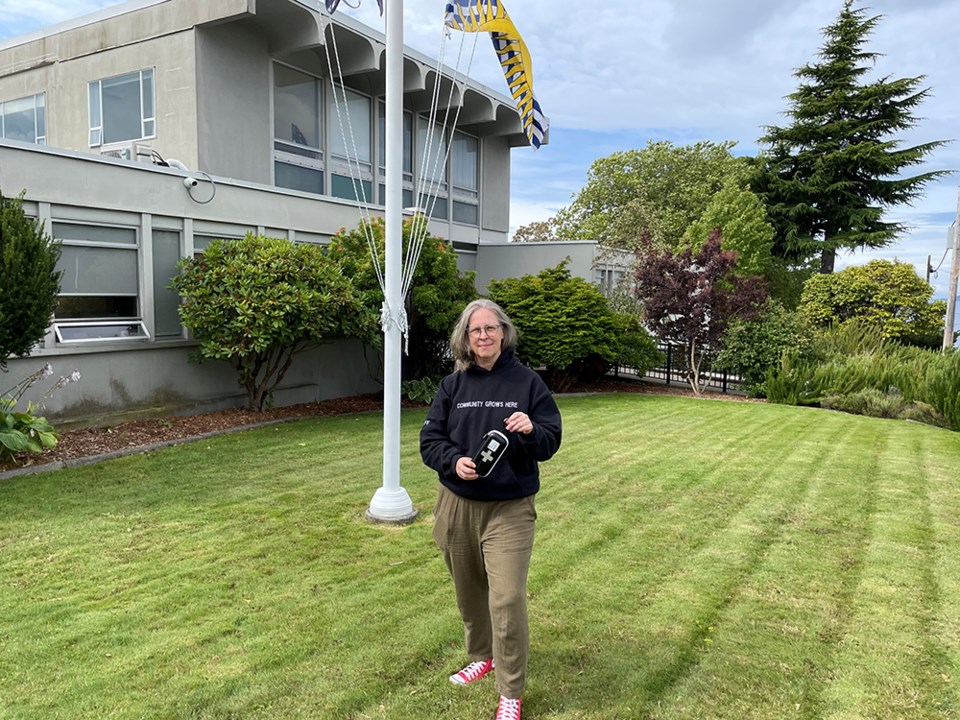International Overdose Awareness Day (August 31) will be marked across qathet with civic events, hands-on training and a call for compassion.
The qathet Community Action Team (qCAT), with support from Lift Community Services, invites residents to show up, learn and engage with a crisis that continues to take local lives. On August 21, the team will present a delegation at the city council meeting and request a municipal proclamation.
“Folks are encouraged to attend and wear purple in solidarity,” says Jessica Colasanto, qCAT’s facilitator.
A council proclamation matters, notes Colasanto, because it signals that the community stands with grieving families and backs evidence-based action.
“It is a chance for mayor and council to affirm that lives lost to overdose matter and that stigma must be replaced with compassion.”
Community members can build practical skills on August 26, when Lift’s community health team offers drop-in naloxone training at Powell River Public Library from noon to 3 pm. Anyone can learn how to administer naloxone, pick up a free kit and connect with resources.
The week culminates with a 10 am flag raising at city hall on August 29.
“These events are open to the public,” says Colasanto. “We will have purple shirts and pins for anyone who wishes to show support.”
Colasanto adds that an additional, private commemoration is also planned for people in the substance use community to remember friends and loved ones.
Because qathet is small, detailed coroner statistics are not publicly released. qCAT relies on information from the Vancouver Coastal Health medical health officer and shares only what is available from the BC Coroners Service at a broader level.
“The only factor our data shows definitively is isolation,” says Colasanto. “Substance use crosses every age group and background, and risk rises when people use alone or without a designated monitor.”
Locally, 2021 was the worst year for overdose deaths. The region trended downward after that and is moving in the right direction. Stigma remains a major barrier. It shows up in language, assumptions about criminality, discrimination in health care and fear of being seen accessing services like drug checking or overdose prevention.
qCAT is a coalition of about 40 local partners working to address the overdose crisis at a local level. Substance users are centred in discussions and decisions are made by consensus. Some members also contribute through subcommittees; others participate to stay informed.
This year, members searched for potential locations for the overdose prevention site and shelter, launched a public newsletter at qcat.ca and supported YouthCAT presentations on harm reduction and naloxone at the library. Next steps emphasize education and reducing stigma, along with closing service gaps.
Colasanto highlights the need for more transitional or second-stage housing, services tailored to harder-to-reach populations and a permanent home for the overdose prevention site. She also calls for access to a safer supply with oversight comparable to legal substances.
“An unregulated, criminalized drug supply drives preventable deaths and health harms; regulated options and stronger health resources are part of the solution. The toxic drug supply is highly unpredictable and overdoses can and do happen anywhere, anytime, to anyone. Naloxone is a simple way to reverse an overdose and keep someone alive.”
Carrying naloxone is a simple way to help. Free kits are available at the Community Resource Centre, 101-1871 Joyce Avenue, and at qathet General Hospital.
“People use substances, and they have done so since the beginning of time,” says Colasanto. “Learn how to use naloxone and keep a kit in your bag, workplace and home. It could save a life.”
To stay informed, sign up for qCAT’s newsletter at qcat.ca, follow qCAT on Facebook, and go to TowardTheHeart.com/alerts or text JOIN to 253787 for drug alerts.




